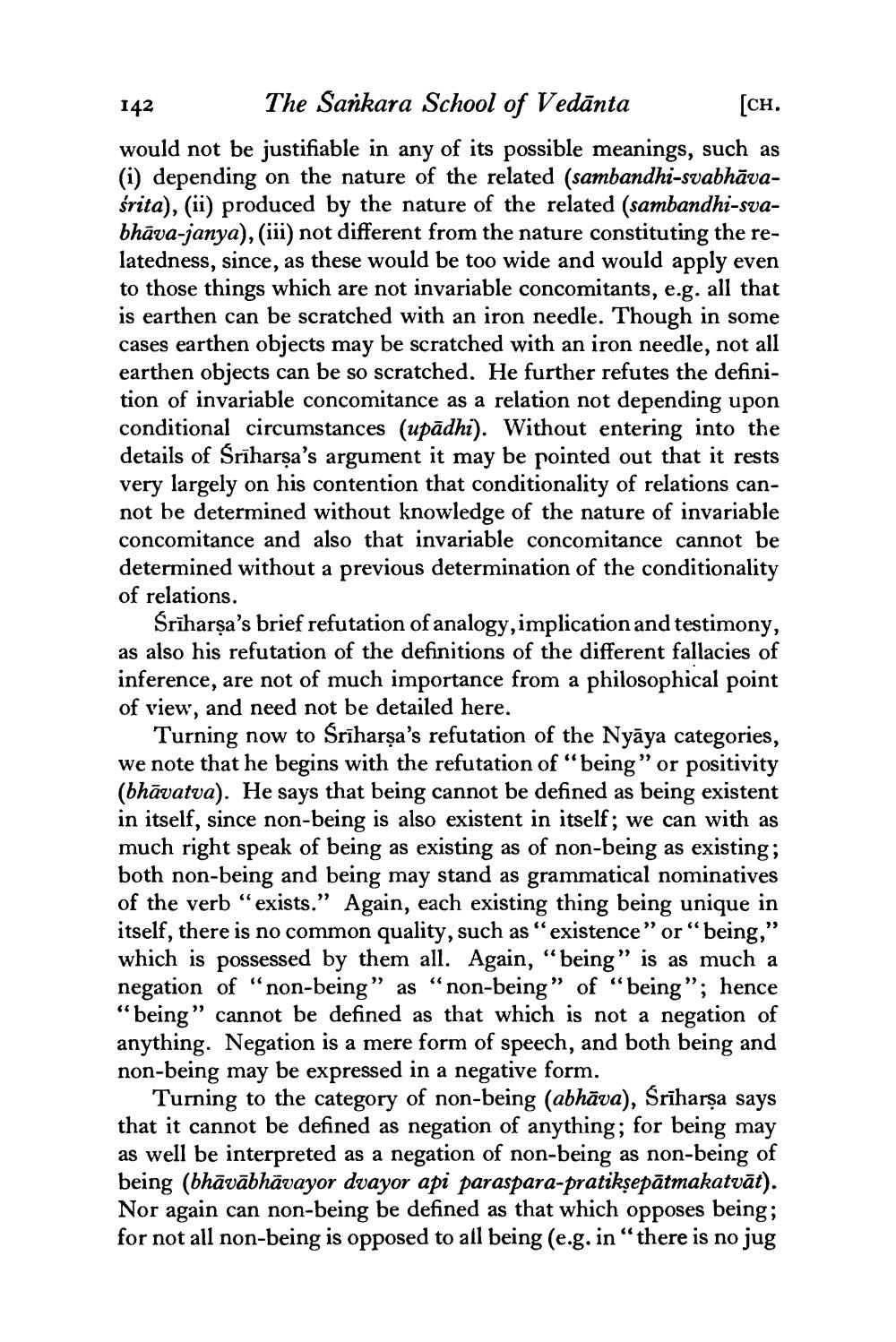________________
142
The Sankara School of Vedanta
[CH.
would not be justifiable in any of its possible meanings, such as (i) depending on the nature of the related (sambandhi-svabhāvaśrita), (ii) produced by the nature of the related (sambandhi-svabhāva-janya), (iii) not different from the nature constituting the relatedness, since, as these would be too wide and would apply even to those things which are not invariable concomitants, e.g. all that is earthen can be scratched with an iron needle. Though in some cases earthen objects may be scratched with an iron needle, not all earthen objects can be so scratched. He further refutes the definition of invariable concomitance as a relation not depending upon conditional circumstances (upādhi). Without entering into the details of Sriharṣa's argument it may be pointed out that it rests very largely on his contention that conditionality of relations cannot be determined without knowledge of the nature of invariable concomitance and also that invariable concomitance cannot be determined without a previous determination of the conditionality of relations.
Sriharṣa's brief refutation of analogy, implication and testimony, as also his refutation of the definitions of the different fallacies of inference, are not of much importance from a philosophical point of view, and need not be detailed here.
Turning now to Śrīharṣa's refutation of the Nyaya categories, we note that he begins with the refutation of "being" or positivity (bhāvatva). He says that being cannot be defined as being existent in itself, since non-being is also existent in itself; we can with as much right speak of being as existing as of non-being as existing; both non-being and being may stand as grammatical nominatives of the verb "exists." Again, each existing thing being unique in itself, there is no common quality, such as existence" or "being," which is possessed by them all. Again, "being" is as much a negation of "non-being" as "non-being" of "being"; hence "being" cannot be defined as that which is not a negation of anything. Negation is a mere form of speech, and both being and non-being may be expressed in a negative form.
""
Turning to the category of non-being (abhāva), Śrīharṣa says that it cannot be defined as negation of anything; for being may as well be interpreted as a negation of non-being as non-being of being (bhāvābhāvayor dvayor api paraspara-pratikṣepātmakatvāt). Nor again can non-being be defined as that which opposes being; for not all non-being is opposed to all being (e.g. in "there is no jug




